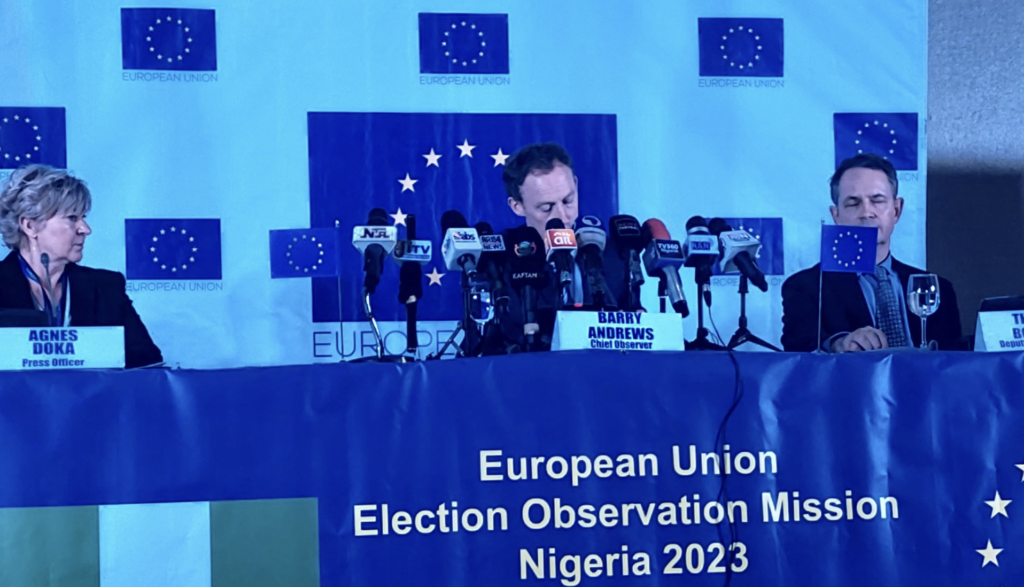- By Halimah Olamide
The European Union Observation Mission to Nigeria on Monday gave a low rating to the Saturday’s nationwide governorship and House of Assembly elections.
Barry Andrews, Chief Observer and Head of the Mission said there were many irregularities that characterised the election saying that the elections dd not pass integrity test.
The EU listed violence, low participation of women and abuse of the power of incumbency by some state executives as some of the problems observed in the elections.
The EU team spoke at a press conference in Abuja on Monday.
Listing out the flaws in the elections, the EU said, “Overall, on election day, multiple incidents of thuggery and intimidation interrupted polling in
various locations, primarily across the south but also in states in the central and northern areas. There were reportedly some 21 fatalities. In polling units in several states, violent incidents targeted voters, INEC personnel, citizen observers and journalists.
“Most polling units opened with materials and personnel deployed on time, although a dismal level of voter participation meant less pressure on INEC operations throughout the day. Vote-buying, also observed by EU EOM observers, further detracted from an appropriate conduct of the elections.”
In what suggested veiled reference to inducements by state governments ahead of the Governorship elections, the EU noticed that state governments used resources to buy voters to their sides.
It said in its report, “Misuse of state resources was evident, primarily through the promotion of social benefits and relief programmes, which significantly intensified between the polls. As noted by EU EOM observers and reflected in media reports, governors publicly provided inducements to voters, including significant grants for traders, distribution of vehicles, buses, and motorcycles (Yobe, Gombe, Adamawa); issuing cheques to different beneficiary groups (Nasarawa, Yobe, Kwara); inaugurating infrastructure projects and for campaign purposes (Ogun, Katsina); and the payment of 1.2 billion Naira in backlogged pensions to civil servants and the release of impounded vehicles to owners free of charge days before the elections (Lagos).”
Also observed, according to the EU, was the failure of law enforcement agencies to bring offenders to justice noting that in some cases journalists covering elections were subjected to intimidations.
“Law enforcement agencies failed to prosecute persons who attacked, intimidated, or harassed journalists during or after the presidential polls in at least five southern states with fiercely contested state-level races. In two further states, police arrested two journalists on bogus charges. EU EOM observers confirmed 10 incidents involving media; only in one instance police opened a case.
“Impunity encouraged by police inaction is detrimental to freedom of expression, particularly as independent and trusted outlets are targeted. This does not accord with Nigeria’s regional and international commitments for protection of the media,” the report said


